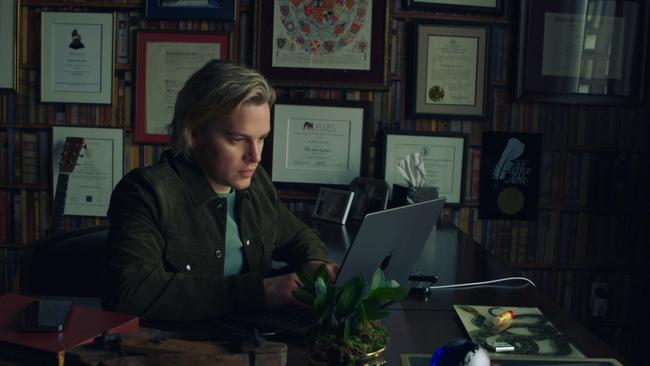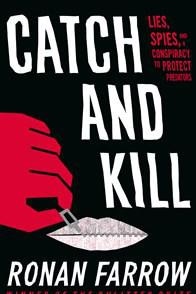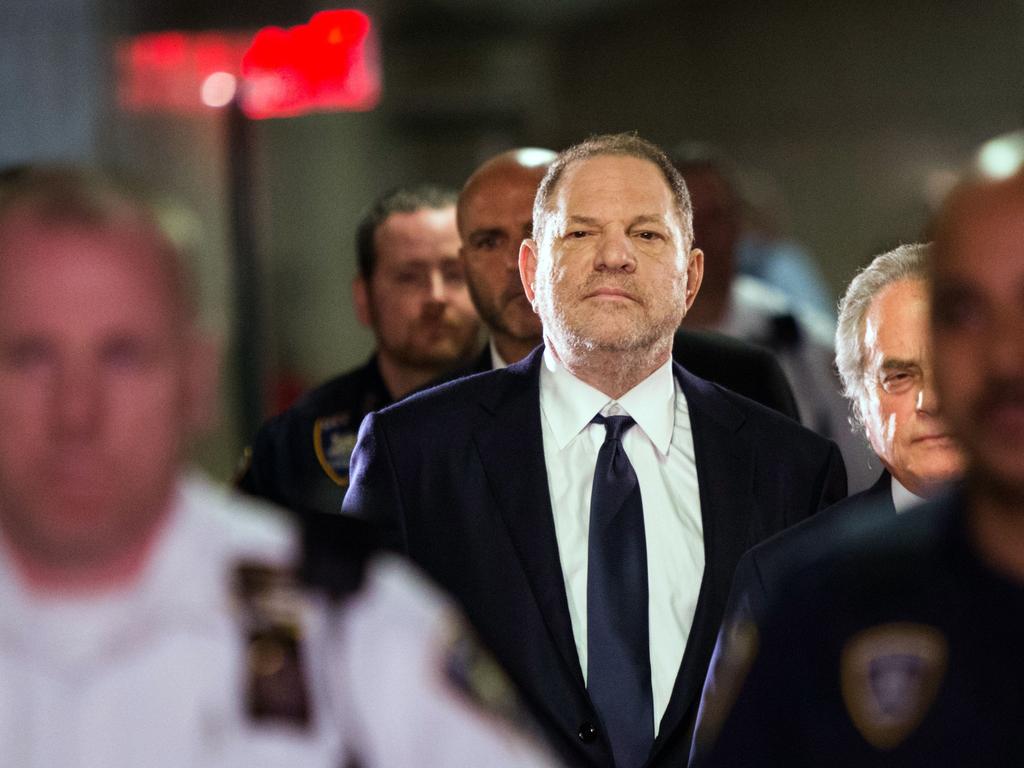‘Is my phone spying on me?’: Ronan Farrow answers the question we’re all asking
Why do those pesky, eerily relevant advertisements pop up shortly after we chat with somebody or finish a call? An alarming new documentary contains startling revelations.

”Is my phone listening to me?” It must be one of the most constantly asked questions in our day-to-day lives, as those pesky, eerily relevant advertisements pop up shortly after we chat with somebody or finish a call.
It’s disconcerting, a little threatening, those commercials increasingly unwelcome and tediously insistent. Is it a conspiracy of some kind, you ask yourself or am I just delusional, a bit paranoid? Surely, it’s simply coincidence and my phone isn’t being used for some inane marketing reason, its data being tracked and monitored so advertisers can target us.
Well, it’s more than likely that it is listening – or if it’s not now, it could be in the future.
This is just one startling revelation of Surveilled, the new frightening HBO documentary in which New Yorker journalist Ronan Farrow investigates the shadowy world of invasive surveillance technology. He painstakingly walks us through the complex, clandestine, highly protected world of traditional surveillance techniques and the way they have morphed into modern commercial spyware.
It’s been a quiet transformation. But as he reveals in this dense, complex film, every phone, in every pocket, is now a surveillance device. Each is capable of secretly recording you, or transmitting your private information to unseen, possibly hostile intruders. This is despite end-to-end encryption.
Commercial spyware, once billed and publicly acknowledged as a tool purchased by governments fighting terrorism, now appears on the phones of activists, journalists and, increasingly, ordinary people without their knowledge. Us that is, our phones, who knows?
As Farrow demonstrates, after hijacking a cell phone, intruders, cyber mercenaries, can capture audio or video, eavesdrop on conversations, track precise geolocation, and reset passwords through two-factor authentication.
These devious anonymous trackers leave no trace, no digital clues to their identity. And as Farrow points out in an exhaustive investigation, these stalkers have been used by both authoritarian and democratic governments to track not only terrorists and criminals but journalists, human rights activists, and political opponents.
Surveilled is produced by Farrow and directed by the award-winning team of Matthew O’Neill and Perri Peltz, with O’Neill doing much of the photography. And it is based on the New Yorker article from Farrow, The Surveillance States. He has written extensively about the use of surveillance technology in democracies, demonstrating the temptations of its misuse, and the elusiveness of accountability. Farrow was responsible for much of the reporting that ultimately led to Harvey Weinstein’s conviction on sexual assault and rape charges in 2020. But in doing so he suffered an emotionally devastating surveillance.
“As you know, I suffered some old school private investigation tactics and surveillance and we reported on that in the magazine,” he tells New Yorker editor David Remnick in a sequence that tops and tails the film.
They’re taking part in a New Yorker podcast recorded somewhere in the offices of the magazine, Farrow initially speaking of just how virulent the cyber spy technology he’s been investigating is, how lethal its effects. Remnick has asked him why he became so intimately involved.
“I had worked on a number of investigative stories that pissed off people with a lot of resources. Some of what they threatened me with was traditional – on the ground spies following me around – but there was also this digital surveillance I ran into, like those spies used by GPS data to track me.”
He realised that “the bleeding edge” of surveillance is these digital tools and that they are getting way more powerful. And that, “the most advanced spyware can turn your phone into a spy in your pocket.”

Something called Pegasus, he tells Remnick, initially developed for law enforcement by an Israeli cyber arms company called the NSO Group, can actually remotely control any iPhone without any indication that a hack has occurred. (Pegasus in Greek mythology was an immortal white horse with wings, in modern times regarded as a symbol of poetic inspiration.)
O’Neill and Peltz then follow Farrow throughout 2021 and 2022 as he travels from continent to continent investigating the activities of NSO for what eventually becomes his article for the New Yorker. It’s a clever idea to chart the story of a process and it’s one that continually astounds and astonishes the unflappable Farrow, though he rarely gives anything away. He’s in search of what he calls “unvarnished takes” on how the Israeli company really operates and the devastation it has caused. “Israel,” he says, “is at the centre of surveillance innovation, a pipeline from the military into tech start-ups, though Israel says it uses surveillance for self-defence and national security.”
The software is credited for being a key factor in the apprehension of infamous Mexican cartel lord El Chapo – but it also has been linked with the murder of journalist Jamal Khashoggi at the hands of Saudi government agents. Evidence was uncovered suggesting the company’s spyware was used to try to monitor people close to Khashoggi before and after his death.
Employing the conventions of the best true crime stories, O’Neill and Peltz shadow Farrow wherever cameras are allowed during his investigation into what he calls a “destruction industry”. O’Neill’s hyperactive camera is there as Farrow interviews many of those involved both in the creation and employment of Pegasus, some in heavy disguise, and those who actively oppose its use and have worked to expose it.
Farrow and his directors attempt across the film to create a coherent narrative from fragments and traces of many interviews, and as they do so they mirror our own theories and prejudices about the unfolding story. As Farrow says: “There’s a lot to hustle with this one.”
Farrow’s a good interviewer, too, understanding the trick is turning an encounter into a conversation, getting the subject to volunteer more than they might usually in such contrived circumstances.

This is an investigator who takes no prisoners, though he is mild and always polite, even as doors are sometimes closed in his face.
You never sense him waiting to toss in a question he’s been thinking about, mulling over while nodding and agreeing with his subject’s chat. And he listens intently, the way all very good actors do, working off cadence and intonation, as he scribbles in a notebook with a pencil.
Farrow and his team manage access to NSO’s lavish headquarters in Tel Aviv under the company’s new philosophy of “transparency” under the close supervision of its PR, some doors closed to the camera. He’s reassured responsibility for Pegasus is tightly observed. Trust us, they tell him. But O’Neill’s camera is there too in a hotel room as the Israelis call to dissuade him from contacting so-called “formers”, technicians who have left NSO. Trust us? Sure.
He travels to Toronto to visit the activists at the Citizen Lab who have uncovered ongoing unlawful surveillance and human rights abuses perpetrated using NSO Group’s Pegasus spyware.
And then to Spain, where Citizen Lab investigator Elies Campo, in collaboration with Catalan civil society groups, has identified the way the democratic government had used Pegasus to spy on activists and journalists.
“I’ve been reporting this for years and I haven’t found any governments that provide meaningful transparency about how they use these tools,” Farrow says.
This is a very scary film, troublesome and upsetting, made expertly and cinematically by its two directors. As Farrow says at the end, “Spyware is here to stay; the industry is still growing and it’s going to get more sophisticated, more intrusive and easier to hide, especially as we witness the dawning of the new era of artificial intelligence.” And it’s always going to be a threat to democracy. And to each of us.
As Farrow says in conclusion: “Our only path toward privacy might be living without our phones
Surveilled streaming on Binge.





To join the conversation, please log in. Don't have an account? Register
Join the conversation, you are commenting as Logout